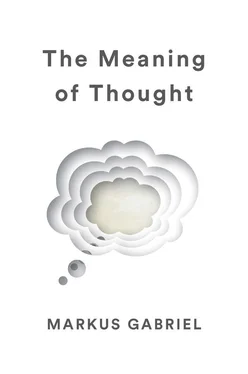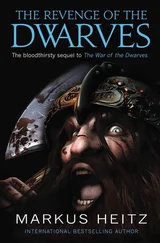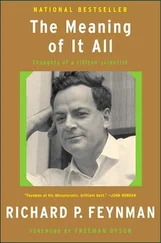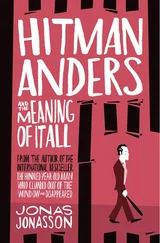This is not to say that humans always act as their values dictate, or even that there is a high probability that they will. Freedom means precisely being able to act in this way or that way – morally or immorally. Yet our freedom also means that we cannot do anything at all without regulating and directing our behaviour. In modernity, therefore, the ultimate horizon of our self-determination, the highest value, is given through our conception of the human. We no longer seek the highest value beyond the human being, in a divine sphere, but we look within ourselves. This does not mean that we are steered around by the voice of conscience; rather, it means that we can steer and control ourselves, by recognizing that we are all united in being human. In this way, modernity is oriented around humanity as the bearer of reason and, if it is to be consistent, naturally has to recognize the value of non-human life too. Enlightened humanism therefore also demands the recognition of animal rights and the careful cultivation of the environment, to sustain the conditions of human and animal life quite generally on our planet.
Nothing less than this already lies in the expression Homo sapiens , which was introduced by the Swedish naturalist Linnaeus (1707–1778) in his Systema naturae . In Linnaeus’s classification, the human differs from all other life forms in being the creature subject to the Delphic oracle’s demand: ‘Nosce te ipsum, know thyself’. 8Wisdom ( sapientia ) is the capacity to determine oneself. The problem is that wisdom does not automatically entail that one does the right thing. This is why the Delphic oracle, whose dictum is quoted by Linnaeus, designated Socrates as the wisest of all men. 9For Socrates understood the structure of the oracle’s invocation: to the question of what the human being is, the answer is not fixed by pointing to any norm set by God, the gods or the cosmos; rather, it is determined solely by how we determine ourselves. We are condemned to be free, as Jean-Paul Sartre (1905–1980) put it, somewhat misleadingly. 10
This book is an act of self-determination. Human self-determination occurs at two levels: at one level, what matters is that humans – whether we like it or not – are animals of a certain kind. It is only thanks to our being the animals we are that we are in a position to know reality in the first place. Cognition is not a process that takes place in some ethereal realm; it is one that is tied to ineliminable biological parameters. We are neither gods, nor angels, nor computer programs run on wetware, the slimy matter of our nervous systems. At another level, though, we are not just animals of a certain species. Unlike the ‘last pre-human mammals of evolution’, as the German poet Durs Grünbein (b. 1962) puts it, we are not ‘creatures halfway between humanity and the rest of the zoo’. 11As minded beings who, thanks to language and reflection, have a particularly developed sense of thought, we humans are in contact with infinitely many immaterial realities.
As the American philosopher Saul Aaron Kripke (b. 1940) rightly notes, reality shouldn’t be confused with the ‘enormous scattered object that surrounds us’. 12Reality as we know it is just not identical with the material-energetic system of the universe. The real is what we can be wrong about and what – for that very reason – we can grasp as it truly is. Our thinking belongs to reality. It is itself something real – just like our feelings, unicorns (in films such as The Last Unicorn ), witches (in Goethe’s Faust ), stomach aches, Napoleon, toilet bowls, Microsoft and the future. This was the idea I set out and defended at length in my book Why the World Does Not Exist .
Because of the globalization of commodity production and the digital interconnectedness of our news services, we are currently experiencing a dangerous ideological shift. By an ideology, I understand a distorted conception of the human that fulfils a socio-economic function, usually the implicit justification of an ultimately unjust distribution of resources. These days we are continually encouraged to believe that reality could be entirely different from how we believe it to be. And this notion is only nourished further by political sloganizing about a ‘post-factual age’, fake news and alternative facts, right through to ‘post-truth’.
We have thus arrived in an age of a new metaphysics. By metaphysics, I here understand a theory of reality as a whole, which distinguishes between a real world (being) and the appearance and deception that supposedly has us humans caught in its snares. Our age is metaphysical through and through. It builds on the illusion that, in its most important facets, our entire life is an illusion, one we can see through only with great difficulty, if at all.
Yet the illusion that reality is an illusion is ultimately a distraction from what’s really going on: the digital revolution of the past decade is a consequence of the modern knowledge-based society. In the age of first-wave enlightenment, the combination of all forms of knowledge was still the priority, the aim being the ‘education of the human race’. 13In the second half of the nineteenth century, positivism came to prevail, with its doctrine that all relevant human achievements can and should be sought in the sciences of technology and nature. Today, the metaphysics that sets the tone is materialism, where this encompasses both the doctrine that everything that exists consists of matter and the ethical conception that the meaning of human life ultimately consists in the accumulation of goods (cars, houses, sexual partners, smartphones) and their pleasurable annihilation (burning fossil fuels, ostentatious luxury, gourmet restaurants).
From a socio-political perspective, materialism corresponds to the idea that the primary function of a government is to develop and enforce the regulations necessary for material resources to be distributed in such a way that as many citizens as possible can experience the enjoyment of squandering them. This in turn serves to foster the preservation of our materialistic image of the human.
The digital revolution is closely connected with the surveillance apparatuses of modernity. As depicted in the TV series The Americans , it famously emerged on the back of military research projects in the Cold War. The major internet companies of our time are advertising platforms whose existence places traditional media under ever more pressure, forcing them to compete for the attention of the reading public with opinionated coverage and titillating scandal.
Yet my aim here is to provide not so much a sociological description as a philosophical diagnosis of the intellectual mistakes that underlie the materialist ideology of our time. In particular, we will be concerned with our own thinking. An ideology is a kind of intellectual virus circulating through the bloodstream of our thought; at first, it strikes here and there at the foundations of our health, without our so much as noticing, before finally overwhelming us. To take up a formulation of Peter Sloterdijk (b. 1947), I’ll be looking to develop a co-immunism – that is, to improve our mental immune system. 14We have to vaccinate ourselves against the false notion that we cannot know the truth and that, in the age of the internet, reality may no longer exist at all.
This means entering (in thought at least) right into the lion’s den: into the age of reality shows and the ever-expanding and encroaching online society. The task will be to reclaim a sense for our own thought, which will protect us from the error of believing that we are on the brink of abolishing humanity and stepping into a paradisiac age of total digitalization.
Читать дальше










